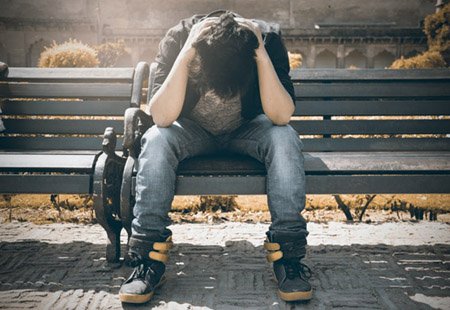
Depression Therapy
Do You Feel Lonely And Unsupported?
Are you isolated, sad, and uninspired? Has shame crept into your sense of self, causing you to believe your low mood is somehow your fault? Do you wish you had the support you needed to pull yourself out of this dark hole and move toward the light?
When you’re dealing with depression, it can seem like a malaise has settled upon every aspect of your life. Even though you may be able to keep up an outward appearance to others that everything is okay, inwardly you feel hopeless and alone.
Perhaps trying to accomplish even the bare minimum each day has become increasingly difficult. You may be struggling to stay motivated or maintain focus at work and your low mood may be causing you to lose interest in the activities and relationships you once found pleasure in.
The symptoms of depression can take different forms. Maybe you notice you have a short fuse and feel irritable and prone to angry outbursts. Or perhaps experience crying spells as a sense of overwhelming sadness impacts your outlook and worldview.
Your Behaviors May Exacerbate Your Depression
You may be turning to unhealthy behaviors—such as binge eating or substance abuse—to mask your despair. Your depressed state could also be leading to changes in weight, sleep disruptions, impaired concentration, and low energy. Because you’re not ready to admit you’re struggling, you may have cut yourself off from those closest to you rather than confide in them about how you feel.
Fortunately, the support you need to overcome depression is available in therapy. Not only will you learn why you’re struggling, but you will gain the self-acceptance necessary to help yourself and find hope to make meaningful change.
Many Of Us Struggle From Depression For A Wide Range Of Reasons
According to the National Institute of Mental Health, Major Depression is one of the most common mental disorders in the United States. In 2020, “an estimated 21.0 million adults had at least one major depressive episode. This number represented 8.4 percent of all U.S. adults.”[1] Further, the World Health Organization reported that, “in the first year of the COVID-19 pandemic, the global prevalence of anxiety and depression increased by a massive 25 percent.”[2]
The underlying causes of depression can vary greatly but it’s usually attributed to a combination of factors including biological, situational, and family history, as well as genetics. However, put simply, the seeds of depression are planted when we feel we’re not heard or understood by those closest to us or allowed to show our vulnerabilities.
Our Cultural Influences Can Impact How We Address Our Mental Health Issues
Whether it’s our religion, culture, family of origin, or even our gender, the way we were raised has an impact on how we assign self-worth and interpret emotions. For example, as children, we may have been taught to strive for external validation. Yet, when our sense of self-worth is associated with material rewards, it can lead to a sense of emptiness. And for some of us—especially men—we were raised to believe that sadness is a sign of weakness and, therefore, it can be difficult to express this emotion.
If we were taught to discount the benefit of therapy, we may hold off seeking help for depression until we’ve hit a crisis point. What’s more, if we convince ourselves that treating our depression is an indictment against our parents, we may decide to forego therapy and suffer needlessly as a consequence.
However, depression counseling can be a helpful tool to guide you back to mental wellness. Working with a supportive therapist who offers empathy and guidance can help you manage your symptoms of depression so that you can move beyond them.
Therapy Can Help You Identify The Underlying Causes Of Depression
If you’re like most people who suffer from depression, you’ve already exhausted all other possibilities before seeking therapy. Getting to this point has taken a lifetime—as a child you likely lacked the resources to process trauma or cultivate healthy relationships, leading you to develop unhealthy coping mechanisms which have worsened over time. Although it’s important to understand your past, what’s most important is to explore what’s going on in the here and now so you can take the necessary steps toward healing.
In therapy, I aim to meet you where you are without judgment by providing you with a safe, non-judgmental space that will help you feel empowered to process old wounds and learn beneficial coping skills for managing depression symptoms. With my validation and support, you will realize that the solutions to your issues lie within you, it’s just a matter of trusting yourself.
What To Expect In Sessions
At our initial session, we will get to know each other and begin to form our therapeutic partnership. I will listen to your concerns intently without adding to the expectations you may already have for yourself. A common hallmark of depression is forming co-dependent relationships in which you give of yourself to excess without getting anything in return. As a result, you may be a people pleaser who never prioritizes your own needs, leaving you depleted and emotionally spent.
In ongoing sessions, we will examine your childhood and family dynamics to determine whether codependency developed in your childhood or, perhaps another underlying reason—such as unresolved trauma or the unrealistic expectations you place on yourself—contributes to your depressive behavior. By understanding the “why” behind your depression in therapy, we can then pinpoint solutions, like setting boundaries, identifying social support, or processing unresolved traumatic memories, to help you become empowered and self-confident.
The Modalities I Use
I offer an eclectic blend of modalities to help you gain self-understanding and self-acceptance. Exploring the guilt and shame often associated with depression from a psychoanalytic perspective will help bring clarity to the unresolved emotions you’re experiencing. I will tailor treatment to pinpoint how best to help you manage your depression symptoms.
We may utilize Cognitive Behavioral Therapy (CBT) to help you reframe the thoughts you have about yourself and relationships with others more positively. With CBT, we will bring awareness to your negative self-talk so that these thoughts no longer break down your self-esteem or lead to shame. I may also employ mindfulness techniques to help keep you in the here and now and, once you have made positive progress forward, prevent you from slipping back to previous unhealthy habits. If you are struggling to keep up with hygiene, we will prioritize self-care, diet, and exercise to ensure you are putting yourself first.
You have the potential to live a fulfilling life—once you break free from old patterns you can neutralize shame, build self-esteem, and move toward a brighter future.
But You May Wonder Whether Depression Therapy Is Right For You…
How can I trust a depression counselor with my innermost thoughts and feelings?
I understand the idea of sharing your fears and vulnerabilities with a stranger can sound scary at first. But as a therapist who specializes in treating depression, I aim to meet you where you are without judgment. The therapeutic relationship we build will be collaborative—I am trained to listen and be supportive of whatever you’re going through, striving to create an environment where you feel safe and accepted for who you are.
How is depression treatment with a therapist better than an app I can use at home?
Perhaps an app can offer some recommendations you may find helpful, or maybe you prefer the idea of not having to attend therapy in person. However, with an app, you will miss the human connection, which is a vital component of successful therapy. Additionally, apps tend to focus more on behaviors rather than identifying the underlying reasons for depression, thereby limiting their success rate. If you’d prefer to stay home, I offer telehealth sessions.
Can’t I take an anti-depressant rather than attend therapy for depression?
Although we are lucky to live in an age where anti-depressant medications are available to mitigate the more acute symptoms of depression, they are only one piece of the puzzle. If you think you may benefit from anti-depressants, I can refer you to a psychiatrist for further consultation. However, attending therapy in conjunction with medication has yielded the best results for treating depression. Whereas medication treats its symptoms, therapy can help you get to the root causes of your depression so that you can determine how best to manage it moving forward.
It Would Be My Honor To Support You
Taking the first step toward a brighter tomorrow is within your grasp. If you would like to find out more about depression therapy with me, please visit my contact page.




